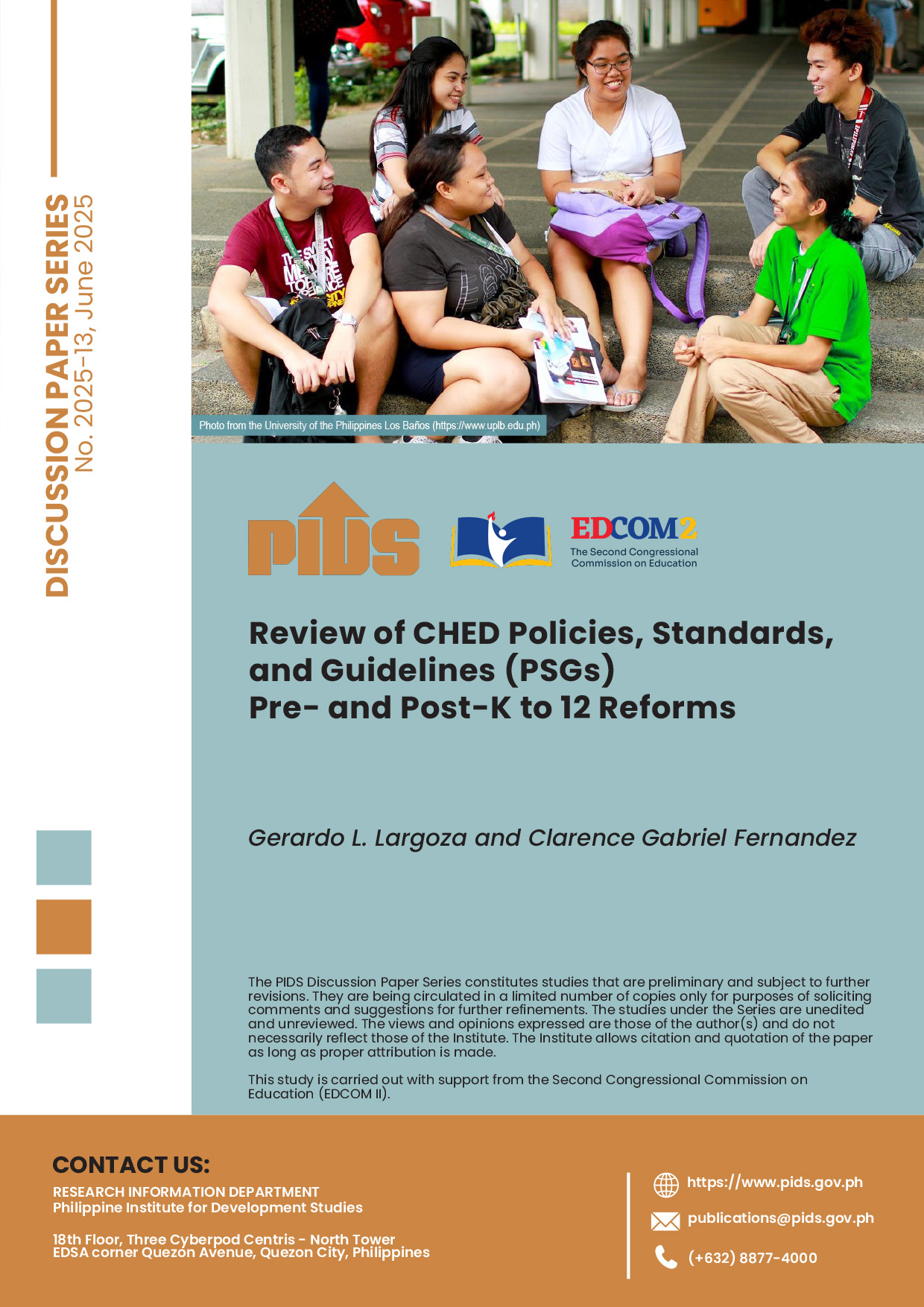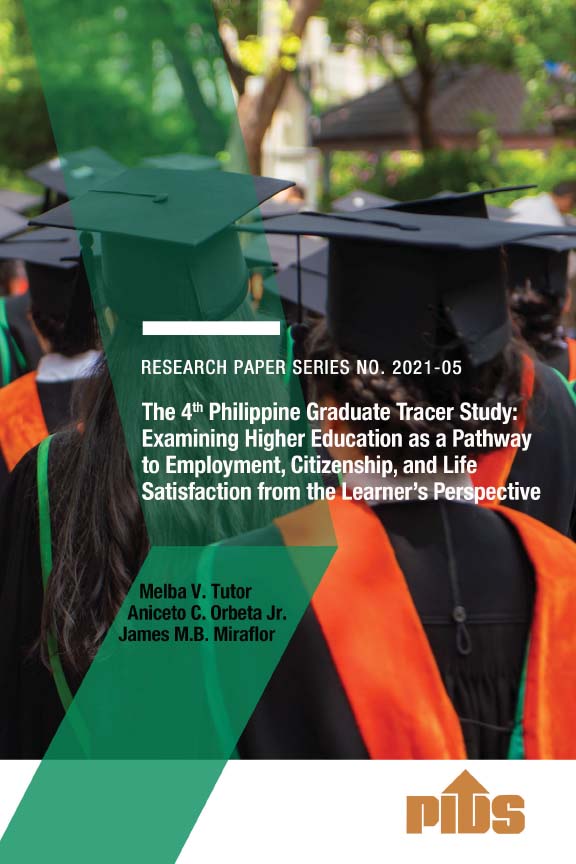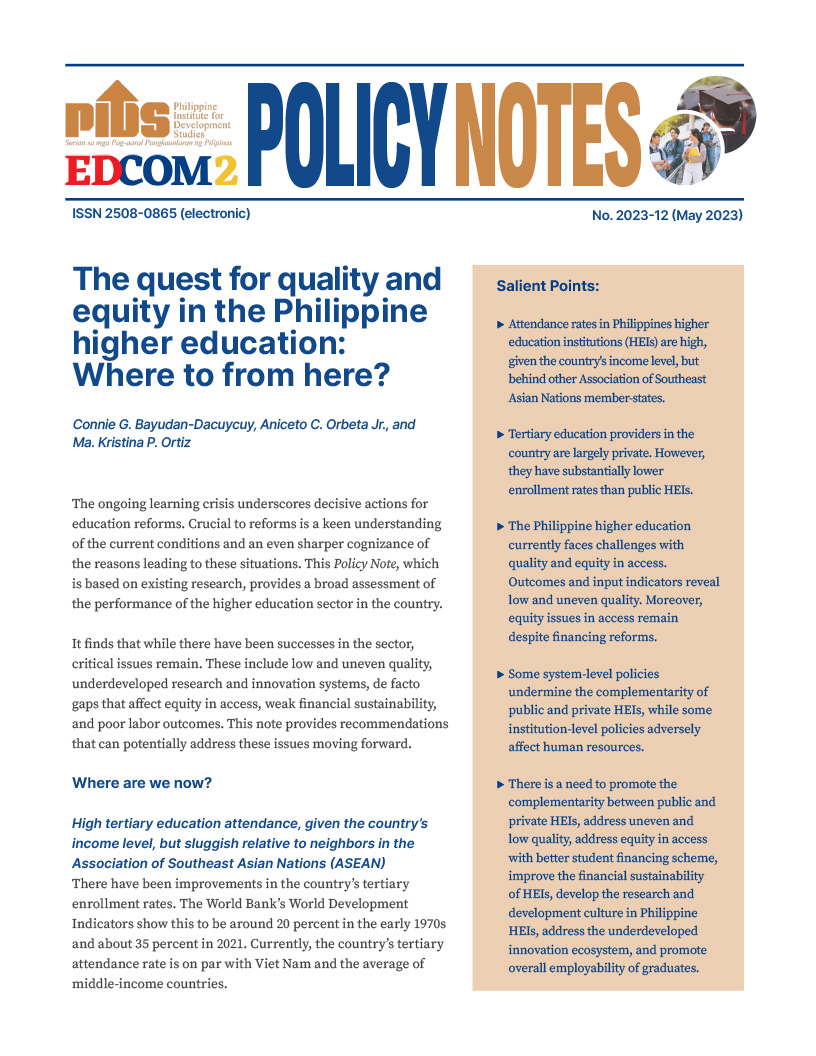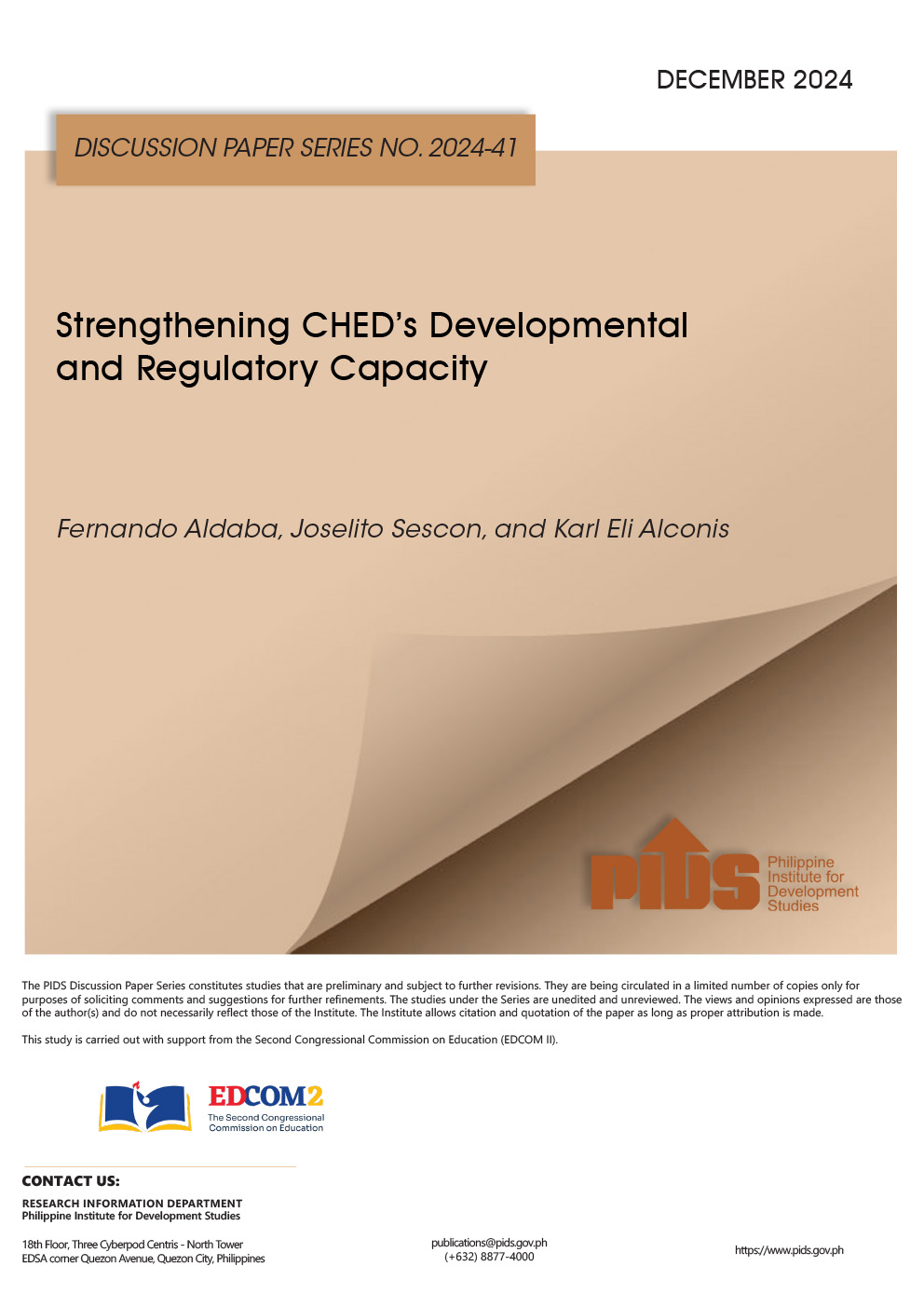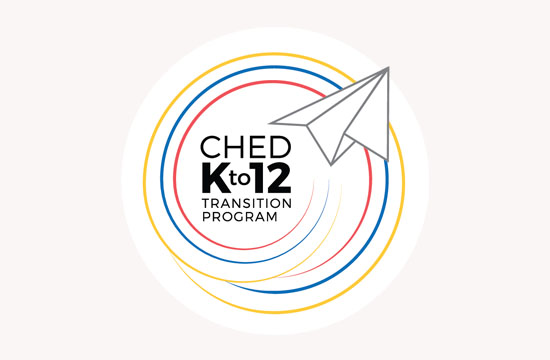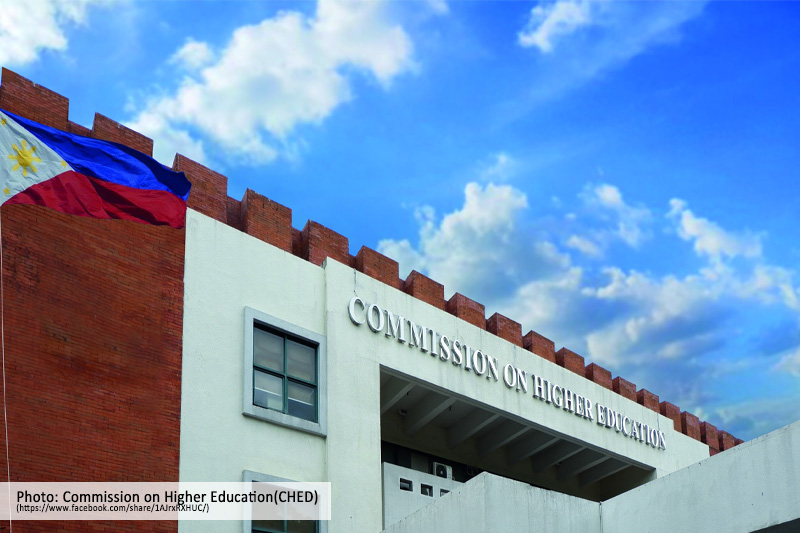In the decade from 2012 to 2021, Philippine higher education experienced three major reforms: the adoption of an outcomes-based typology for programs and institutions, the establishment of the Philippine Qualifications Framework to set competency standards, pathways, and equivalencies, and the implementation of K to 12 legislation, which added two years to the country’s basic education cycle.
Have these reforms resulted in improvements to the minimum standards embodied in the Policies, Standards, and Guidelines (PSGs) of the Commission on Higher Education (CHED) formulated by independent Technical Panels? This study addresses the issue by taking current PSGs from the ten most-subscribed programs and examining the quality of their learning outcomes and performance indicators, using criteria shared by many global quality assurance bodies. It then compares curriculum designs (total credits, proportion of general education and professional courses, internships) to benchmarks from Australia, the European Union (EU), and the Association of Southeast Asian Nations (ASEAN). Lastly, it consolidates the findings from key informant interviews with six Technical Panel chairs and identifies good practices that can be shared, as well as forms of CHED support that are most urgently needed.
The emergent picture indicates overall improvement in the adoption of outcomes-based principles in curriculum design, but with a high degree of heterogeneity both within and across programs. Quality practices such as the use of verbs from Bloom’s Taxonomy and the preference for more authentic assessments are evident in every set of PSGs, but could still be applied more consistently. On curriculum design (total credits and distribution of course types), the uniform finding is that general education courses have been reduced but promptly replaced by professional courses, resulting in overall academic loads that are significantly higher than benchmarks from Australia, the EU, and ASEAN. Finally, while a few Technical Panels have been able to produce significantly improved, even exemplary, sets of PSGs, strategic clarity and organizational support from CHED are urgently needed for the quality assurance cycle to function effectively.
Comments on this paper are welcome within 60 days from the date of posting. Email publications@pids.gov.ph.
Citations
This publication has been cited 2 times
- Merlina Hernando-Malipot . 2025. College courses in the Philippines: Too much General Education, not enough practical training. Philippine Information Agency.
- Senate of the Philippines . 2025. PH college courses: heavy on general education, lacking in practical training - EDCOM 2. Senate of the Philippines .

